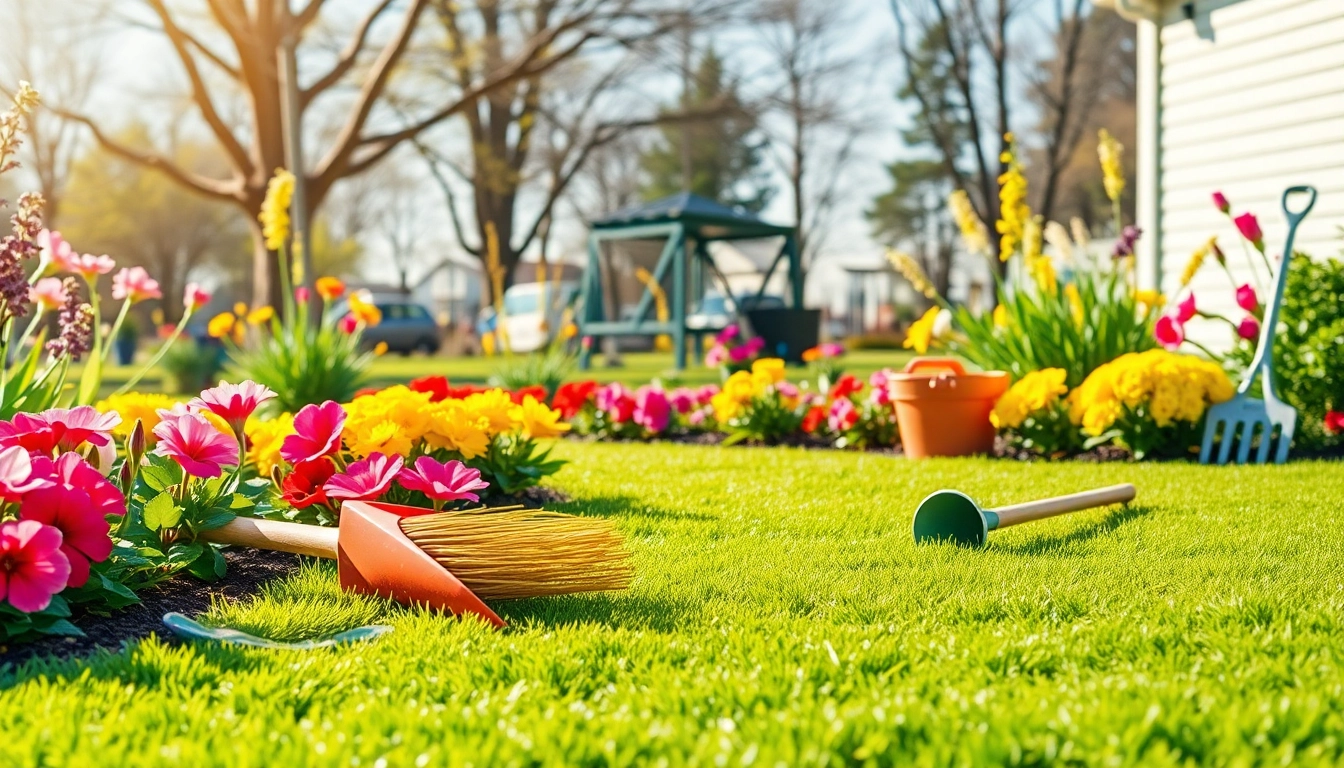Understanding Garden Maintenance Services
What Is a Garden Maintenance Service?
A garden maintenance service encompasses a range of professional tasks designed to keep your outdoor space clean, healthy, and aesthetically pleasing. These services often include routine care aspects such as mowing, weeding, pruning, fertilizing, and pest management. While some homeowners choose to manage these tasks independently, hiring a garden maintenance service can provide expertise, save time, and yield better results.
Why Choose Professional Garden Maintenance?
Selecting a professional garden maintenance service can significantly simplify your gardening endeavors. Professionals bring a wealth of knowledge about plant care, pest control, and seasonal requirements that the average homeowner may lack. Moreover, they possess specialized tools and equipment that are often not feasible for casual gardeners to invest in. With their assistance, you can ensure that your garden receives consistent attention and tailored care that caters to its particular needs.
Key Components of Effective Garden Care
Effective garden care goes beyond mere aesthetics; it involves understanding the complexities of the ecosystem within your garden. Key components include soil health, plant selection based on local climate and conditions, pest and disease management, and sustainable maintenance practices. Professionals can evaluate your garden’s specific environment and make recommendations based on their findings, ensuring a resilient and thriving landscape.
Essential Services Offered by Garden Maintenance Professionals
Lawn Care and Fertilization
Lawn care is foundational to garden maintenance. A well-maintained lawn not only enhances the property’s visual appeal but also improves the overall health of the garden ecosystem. Garden maintenance professionals provide services such as aeration, overseeding, and regular mowing to promote a lush and healthy lawn. Fertilization is critical, as it supplies essential nutrients that promote growth and resilience against diseases.
Pruning and Plant Care Strategies
Pruning is a vital part of plant care, enhancing both growth and structure. Proper techniques involve cutting back dead or diseased branches and shaping the plants for optimal air circulation and sunlight exposure. Garden professionals can guide you on the right pruning schedules based on plant species and seasonal changes, maximizing bloom and fruit production.
Pest Control and Prevention Measures
Effective pest control is crucial for maintaining garden health. Professionals often employ integrated pest management (IPM) strategies that emphasize prevention, monitoring, and environmentally responsible solutions. These methods may include the use of beneficial insects, natural repellents, or targeted applications of pesticides to minimize harm to the ecosystem while keeping pests in check.
How to Choose the Right Garden Maintenance Service
Identifying Your Garden’s Unique Needs
Before selecting a garden maintenance service, assess your garden’s specific needs. Consider factors such as the size of your garden, the types of plants you have, and any particular issues you may face, such as pest invasions or soil health problems. Creating a concise list of your requirements will assist you in finding a service provider that specializes in your areas of need.
Evaluating Service Providers and Reviews
Research potential service providers by checking their online presence, customer testimonials, and past work galleries. Pay particular attention to reviews that highlight reliability, quality of service, and customer satisfaction. Engaging with previous clients can give you a clearer picture of what to expect from a provider.
Questions to Ask Before Hiring a Service
When evaluating prospective garden maintenance services, ask a range of questions to ensure they align with your expectations. Inquire about their qualifications, experience, methods used, and materials involved in their work. Questions such as their approach to eco-friendly practices and their flexibility in scheduling can also offer insights into their professionalism and reliability.
Best Practices in Garden Maintenance
Seasonal Maintenance Tips for a Healthy Garden
Adapting your maintenance practices according to the seasons is vital for garden health. In spring, focus on planting and fertilization; summer may require more frequent watering and pest monitoring; fall is the time for clean-up and preparation for winter; and in winter, you may focus on protecting plants and maintaining equipment. Regular seasonal assessments help anticipate and address the changing conditions of your garden.
Using Eco-Friendly Products and Techniques
Incorporating sustainable gardening practices supports the environment and reduces chemical exposure for plants, pets, and humans. Consider using organic fertilizers and natural pest deterrents. Emphasizing native plants in your landscape design can reduce the need for excessive water and care, as these plants are adapted to the local ecosystem.
Creating a Garden Maintenance Schedule
Having a structured maintenance schedule can immensely improve garden health. Incorporate regular check-ins and tasks such as watering, weeding, pruning, and fertilizing into your calendar. Using reminders and apps can help ensure these routine tasks are completed on time, fostering healthy growth and minimizing the chance of overwhelming issues arising from neglect.
Measuring the Success of Your Garden Maintenance Efforts
Key Metrics to Track Garden Health
To evaluate the effectiveness of your garden maintenance efforts, track key performance indicators such as plant growth rates, soil health measurements, and the prevalence of pests. Utilizing tools like soil testers or plant health indicators can provide data to help gauge the impact of your maintenance routines. Observing plant flowering patterns can also be a good indicator of success.
Feedback and Communication with Service Providers
Open communication with your garden maintenance service provider is crucial for success. Feedback regarding their work can help fine-tune services to better meet your expectations. Regular discussions can also ensure that any emerging issues are dealt with promptly, enhancing both plant health and customer satisfaction.
Continuous Improvement in Garden Care
Continuous improvement in garden care involves regularly assessing the effectiveness of your maintenance strategies and making necessary adjustments. Keeping a garden journal to log successes, challenges, and the results of various techniques can be invaluable. This documentation can serve as a guide for optimizing garden conditions and achieving a thriving outdoor space.



